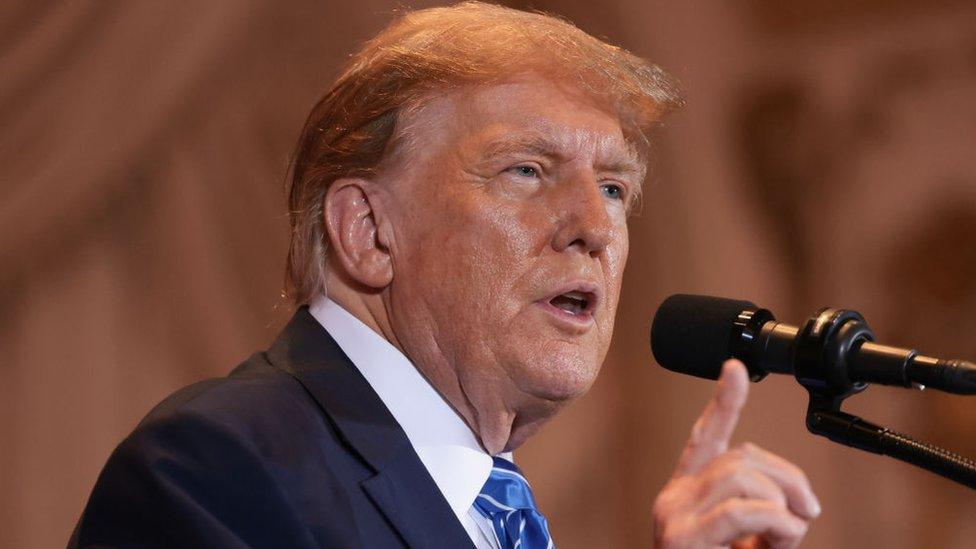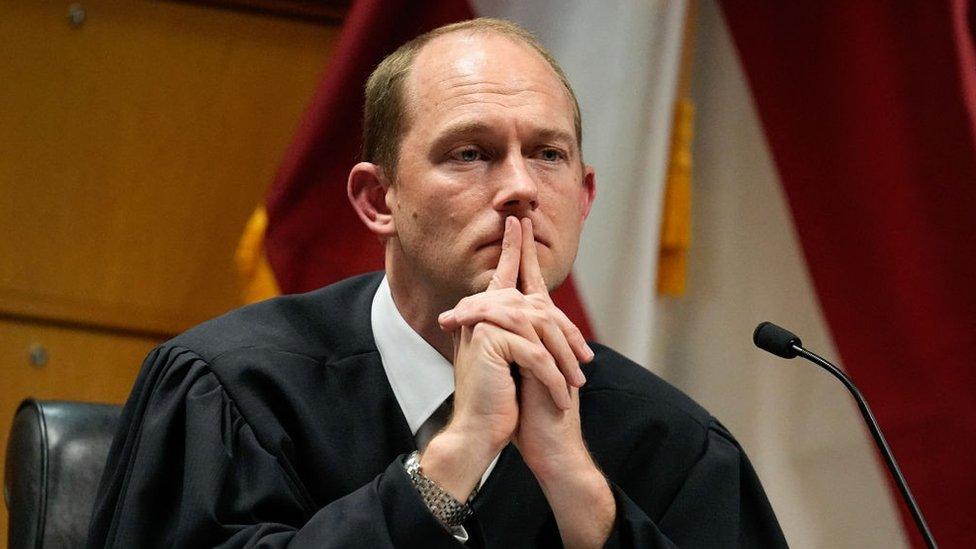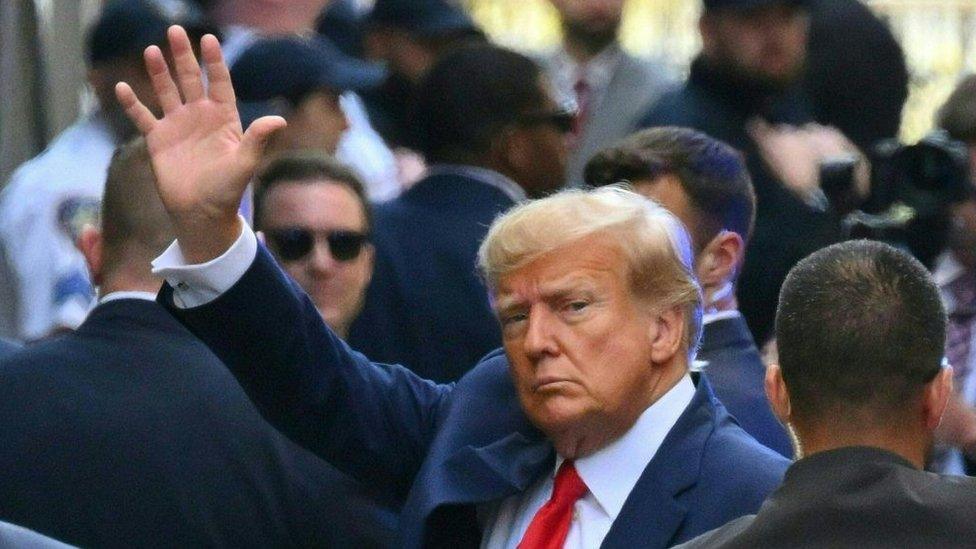Donald Trump's Georgia judge dismisses some criminal charges
- Published

The judge overseeing an election interference case against Donald Trump in Georgia has thrown out some criminal charges, but left most in place.
Judge Scott McAfee found six counts in the 41-count indictment against Mr Trump and some of his co-defendants, including Rudy Giuliani, lacked detail.
But he said the charges can be refiled at a later date.
Mr Trump was among 19 people charged with a conspiracy to overturn the state's 2020 election results.
"The lack of detail concerning an essential legal element is, in the undersigned's opinion, fatal," Judge McAfee wrote in his order on Wednesday.
He said the charges do not provide the accused with enough information to prepare their legal defences "intelligently", adding that "this does not mean the entire indictment is dismissed".
Mr McAfee was randomly assigned the Trump case in 2023, just six months after being appointed as a judge by Georgia Governor Brian Kemp, a Republican.
He previously worked as a prosecutor, including for the Fulton County District Attorney Fani Willis, a Democrat who led the investigation into the former president.
Mr McAfee's ruling affects three of the 13 charges against Mr Trump.
They relate to a call Mr Trump made to Georgia Secretary of State Brad Raffensperger in which he told him: "All I want to do is this. I just want to find 11,780 votes, which is one more than we have."
One of the charges accused the former president of soliciting public officials to break the law by violating their oath of office.
But Mr McAfee said the indictment was not specific enough about exactly what Mr Trump wanted the officials to do.
The other dismissed charges apply to some of his most prominent co-defendants: Rudy Giuliani, John Eastman and Mark Meadows.
Donald Trump: "I just want to find 11,780 votes"
In his order, Judge McAfee said the charges "contain all the essential elements of the crimes but fail to allege sufficient detail regarding the nature of their commission, i.e., the underlying felony solicited".
It comes as a win for Mr Trump and his co-defendants, who had filed to dismiss the charge. Prosecutors could now choose to refile the charges with more information in their allegation, or let the ruling stand and focus on the other charges.
The group had initially faced 41 total charges. The former president is facing up to 20 years in prison in Georgia if convicted of the most severe charge of racketeering.
In a statement, Mr Trump's lawyer in the Georgia case, Steve Sadow, called the ruling "a correct application of the law, as the prosecution failed to make specific allegations of any alleged wrongdoing on those counts".
"The entire prosecution of President Trump is political, constitutes election interference, and should be dismissed."
Mr Trump, who is running for president against Joe Biden in November, has slammed the case as politically motivated.
The Georgia ruling does not address the defence's effort to dismiss Fulton County District Attorney Fani Willis over ethics claims that she had an improper relationship with a lawyer she hired to work on the case.
Mr McAfee is expected to rule on the the ethics complaint soon. If he finds that his former boss should be removed from the case, a trial could be delayed for months.
Mr Trump is the defendant in four criminal cases as well as several civil lawsuits.
On Tuesday, the judge in his defamation lawsuit brought by writer E Jean Carroll accepted a $92m (£72m) bond from Mr Trump while the former president appeals against the verdict. A jury in January found Mr Trump owed the former columnist millions of dollars for defamation when he denied he sexually assaulted her.
If he loses his appeal, the bond ensures Ms Carroll will be paid.
He has also been ordered to pay over $450m to the state of New York after he was found to have committed fraud by lying to banks about the value of his properties.
- Published15 March 2024

- Published25 August 2023
